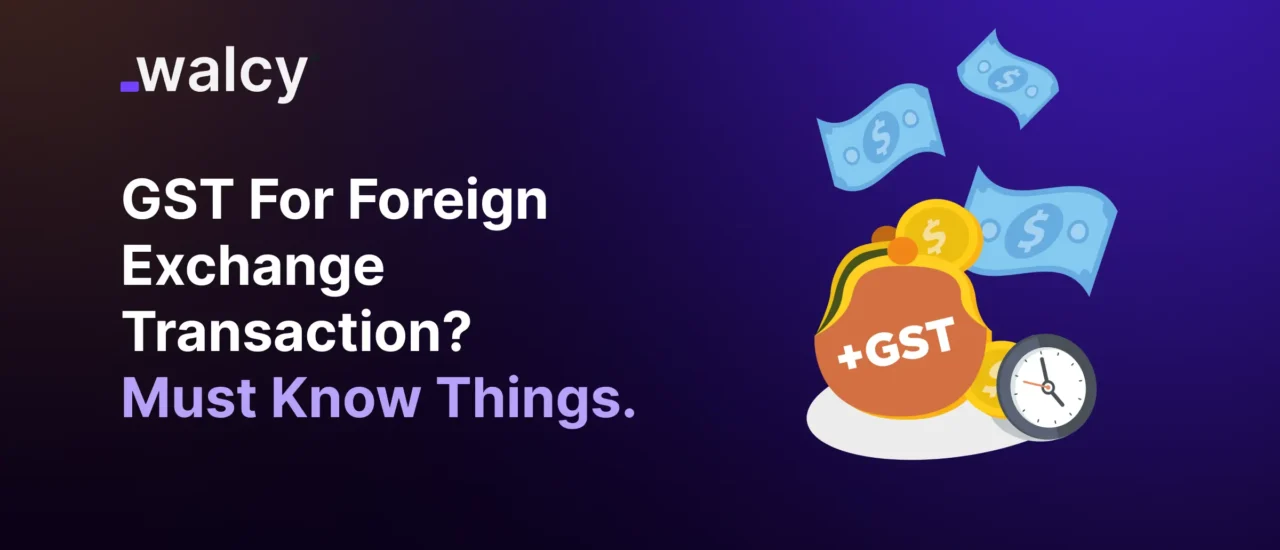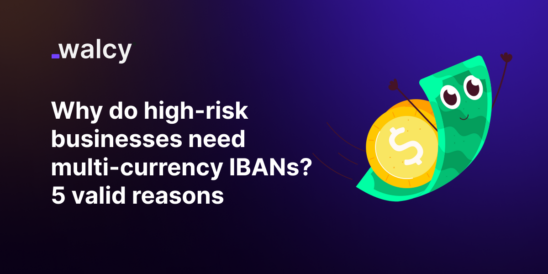The GST has brought many changes in the way business is conducted in India, particularly when dealing with foreign exchange transactions. Businesses engage much with clients based across borders due to the increasing globalization of services; hence, one must know the tax implications.
Enterprises offering services to clients abroad have to know the fine points of the GST for foreign exchange. The blog will explain if you need to charge GST to overseas clients, how foreign exchange fits within the GST regime, and associated matters such as central GST and state GST.
What is GST for Foreign Exchange?
GST on foreign exchange means that goods and service tax is imposed on the transactions about the exchange of currencies, whether such exchange is for goods and services or currency conversion. Any service supplied for consideration under the GST regime is a taxable supply, including services relating to foreign exchange. However, how GST is to be charged to foreign clients varies depending on the nature of the transaction and the place of the recipient.
The transactions are classified under the GST regime to find out the relevant tax treatment, which may be at differential rates or exempt in some cases. Moreover, the nature of the supply, whether inter-state or intra-state, would also determine the applicability of IGST or CGST and SGST. These distinctions are therefore very critical to understand for any business if it has to be compliant while avoiding potential penalties. It has also to be remembered that the currency exchange margins and remittance services may attract special computations of the GST, thus putting an extra burden on the process.
Do You Need to Charge GST to Foreign Clients?
The key factor in determining whether you need to charge GST to foreign clients largely depends on whether the transaction qualifies as an export of services. Under GST, the export of services is a “zero-rated supply.” This means that even though GST is not charged from the foreign client, such a supplier is eligible to avail ITC of the taxes paid on inputs used in the course of supplying the service. For it to be considered an export of services, the following conditions have, in general, to be satisfied:
- The service provider is based in the same nation as the seller.
- The buyer or client receiving the service is located outside of the nation.
- The service is supplied outside of the service provider’s own country.
- The service’s fee is paid in foreign exchange convertible currency or any other means approved by local legislation.
- The supplier and recipient are not simply branches or offices of the same organization.
If all the above conditions are fulfilled, you do not need to charge GST to your foreign clients. If any one of the above conditions is not fulfilled, the service may not be considered an export, and thus GST may apply. Further, proper documentation and compliance with local regulatory requirements are important to ensure that no unnecessary disputes or even loss of such zero-rated supply status take place. Regular reviews of GST practices would allow maintenance of the accuracy and compliance of the same in international transactions.
GST on Currency Exchange Services
Buying and selling of foreign currency come under the category of financial services and hence attract GST. GST, in money exchange, is charged on the ground of differences between the buying and selling rates of the currency at a fixed given percentage by the guidelines of the GST Council.
The exact rate and method of calculation vary accordingly with the difference between the buying and selling rates, and there may be certain thresholds. It is imperative on the part of the business entities dealing in foreign exchange services to be updated with the latest changes in rates and their rules, as they are subject to change and vary overall tax liability. Periodic review and compliance in line with the guidelines set by the GST Council would ensure compliance and proper reporting.
Central GST and State GST in Foreign Exchange Transactions
While dealing with GST, it becomes very important to understand the bifurcation of the same into Central GST and State GST. The former is levied by the central government, and the latter by the concerned state governments. Now, while considering if the place for the supply of a service is within a single state in case of foreign exchange transactions, then CGST and SGST both would apply.
If, on the other hand, it has been said to be an inter-state supply in the law or represents foreign clients, Integrated GST would apply, which combines both CGST and SGST. IGST thus gives assurance of the same rate for services offered across state borders or provided to foreign clients and eases compliance. Knowing the distinction is important to file proper taxation returns and to avoid falling foul of compliance issues. Proper invoicing and documentation are very essential for charging proper GST, depending on the nature and location of the service.
GST Implications on Forex and Other Related Services
Every business concerned with dealing with forex trading or forex-related services needs to be aware of the system of GST. GST on forex includes not only the exchange of currency but also other services like remittance, foreign currency conversion for travel purposes, etc. Rate and applicability may differ according to the type of service and amount.
For example, GST on forex services used for travel purposes is computed differently. Here also, like the money exchange services, a percentage over and above the amount of currency exchanged in foreign currency is charged. Further, some threshold levels might attract differential rates of GST or exempt it, so, it is quite important and necessary that a business properly analyses its transaction. The rates of GST are also subject to change from time to time and the updates have to be followed for the transactions involving these changes. Periodic audits, coupled with consultancy from taxation experts, will not only ensure compliance but also provide optimum strategies for taxation.
You shall love: top factors affecting foreign exchange rates
Conclusion
Businesses across borders should understand GST in foreign exchange and how it is applied concerning services offered to foreign clients. It is a fact that, by default, GST applies to most forex transactions, but services offered to foreign clients may not be applied if they can be considered exports. Added to this is the complexity of central GST, state GST, and integrated GST when dealing with foreign exchange.
The way forward could be to ensure that businesses stay ahead of changes in GST and compliance as far as their liabilities against tax are concerned, to continue offering valuable services to their international clients. Clear documentation and consulting the tax people from time to time may avoid potential problems and smooth operation across borders. Companies will remain compliant, further optimizing their financial strategies for success within the global market with the right approach.
Read more: Know everything about overseas payments
FAQs
Do I need to charge GST on services provided to foreign clients?
Although you do not charge GST if the services represent exports, you are entitled to claim an input tax credit.
How is the GST calculated on foreign exchange services?
The incidence of GST on forex is levied with the difference between the buying and selling rates with distinct percentages applicable depending on the amount involved.
How does foreign exchange relate to CGST, SGST, and IGST?
CGST and SGST are applicable in the case of intra-state transactions, while IGST is applicable for inter-state transactions or any sort of exports.
Are forex trading services subject to GST?
Yes, forex trading and its related services are subjected to GST, whose rate will depend upon the nature of the service provided.
Can I claim input tax credit on services provided to foreign clients?
Yes, if the service qualifies as export, then you are entitled to claim an input tax credit for the GST paid on the inputs used in providing such service.
Do follow us on Facebook and LinkedIn, to stay connected with us.



